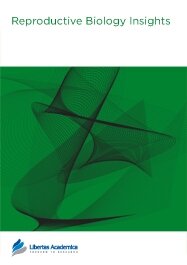

Publication Date: 02 Sep 2009
Type: Meeting Report
Journal: Reproductive Biology Insights
Citation: Reproductive Biology Insights 2009:2 31-37

There has been an astounding explosion in the number of clinics offering ART techniques- 426 program in the US and 600 in Europe. Despite enormous advances regarding the technical aspects of the IVF procedure, the parents’ contribution has virtually been ignored. What is reassuring for patients is that lifestyle habits are within the patient’s control, and when modified, could lead to healthy babies. The focus of this paper will be on the current state of knowledge about the effects of female and male caffeine and alcohol use, and psychological stress on the reproductive endpoints of IVF. There is currently only one study on the effects of caffeine on IVF. In this study, caffeine intake by women had a profound effect on: 1) Miscarriages, 2) Not achieving a live birth and 3) Infant gestational age. The findings of this study require further confirmation. Success rates may be further affected by alcohol consumption. Female alcohol use was associated with: 1) A decrease in number of oocytes aspirated, 2) Not achieving a pregnancy, and 3) Increased risk of miscarriage. Male alcohol use was associated with: 1) Spontaneous miscarriages, and 2) Not achieving a live birth, particularly if consuming beer. Stress also has an impact on IVF success rates. There are several statistically significant studies on baseline and procedural depression, anxiety, stress, and mood, as well as stress hormones that all negatively affected pregnancy rates after IVF. However, the literature on stress and ART was devoid of an instrument that captures the female and male experience of going through ART. Thus, an instrument was developed that rated concern levels about anesthesia, surgery, pain, recovery time, side-effects, finances, missing work, insufficient information and delivering a healthy baby. At baseline, women who were concerned about the medical aspects of the procedure had fewer oocytes retrieved and fertilized. For women concerned about missing work, they had over twice the risk of not achieving a pregnancy, while women extremely concerned about finances had a very high risk of no live birth. Understanding both the independent and combined effects of stress, alcohol, and caffeine on ART may ultimately lead to effective interventions that will decrease adverse outcomes and in turn, produce healthy babies that mature into healthy children and adults.
PDF (498.52 KB PDF FORMAT)
RIS citation (ENDNOTE, REFERENCE MANAGER, PROCITE, REFWORKS)
BibTex citation (BIBDESK, LATEX)

In my experience Reproductive Biology Insights is a model for author-friendly open access journals, combining rigorous peer review with efficient speedy processing. It has been a pleasure--and no pain--working with such a good editorial and production team.
Facebook Google+ Twitter
Pinterest Tumblr YouTube